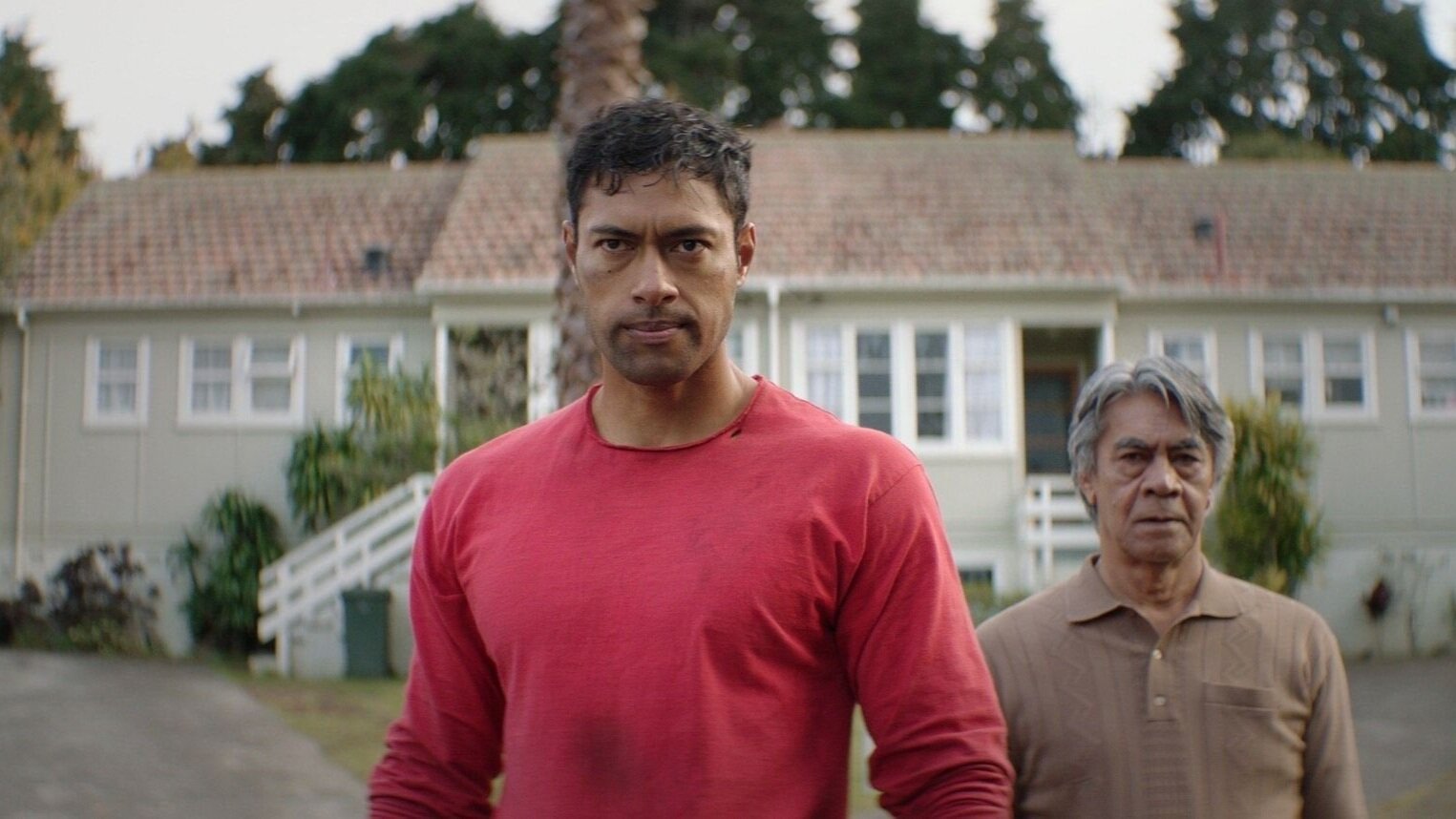FANTASIA 2020: The Legend of Baron To'a
fantasia
The Legend of Baron To’a follows Fritz (Uli Latukefu), the son of the late legendary professional wrestler Baron To’a (John Tui). Fritz is a Tongan entrepreneur living in Australia but returns to his old neighbourhood in New Zealand to sell the family home. In Fritz’s absence, a ruthless gang called the Pig Hunters have taken over the cul-de-sac, harassing the other homeowners and generally wreaking havoc. Their worst offence? Stealing the championship belt of Baron To’a. Fritz’s Uncle Otto (Nathaniel Lees) refuses to move unless the title is won back, leaving Fritz to fight for his family’s honour.
The film has elements of many different genres. It is action-packed, filled with numerous chase and fight scenes as Fritz battles with the Pig Hunters. There is also a lot of humour found in the action and as the opposing sides exchange chirps. There’s a little bit of romance between Fritz and a next-door neighbour. And, of course, there’s a lot of soul and drama as Fritz tries to come to terms with his father’s death, often feeling like he hasn’t been able to live up to the man his father was. These tonal shifts can sometimes feel jarring, and The Legend of Baron To’a does take the expected route and a long time to get there, but luckily, the film is able to maintain its fun and unique Pacifica charm.
The Legend of Baron To’a also delves into some social issues throughout the film. In the opening, a white couple mistakenly turns down the cul-de-sac and have most of their car’s accessories stolen by the Pig Hunters. One of them says that circumstances like the robbery make it harder and harder to be liberal – a nod to the fragility of white liberalism. The only other white character in the film is a crooked cop, who often gets in the way of Fritz’s rivalry with the Pig Hunters while offering little to no help. These instances show that white people usually are unable to grasp differing cultures, and maintaining one’s community is better handled by those who actually live there.
The Legend of Baron To’a is undeniably Kiwi. The characters often switch between speaking English and Tongan at the drop of a dime, using Pacific Islander colloquialisms reflective of their culture. Professional wrestling has also been integral to Polynesian culture. In the film, Otto tells Fritz that his father was a pioneer for the Polynesian people. This is reflective of real-life as well, as WWE – the world’s largest wrestling promotion – is littered with iconic Pacific Islander wrestlers from Yokozuna to Samoa Joe. Pacific Islanders have been severely underrepresented in media but, in the wrestling world, they have become some of the industry’s biggest legends. Seeing wrestlers like Dwayne “The Rock” Johnson in the squared circle storylines have been some of the few times Polynesian people have seen themselves as heroes on screen. The character of Baron To’a is symbolic of this integral part of Polynesian culture. The children in the neighbourhood held great respect for Baron To’a, and many were disappointed when Fritz did not follow in his footsteps. The film also includes further nods to the sport, as Fritz uses professional wrestling moves like suplexes and DDTs as he is fighting the Pig Hunters. Finally, the importance of winning the title belt is integral to The Legend of Baron To’a just as it is in professional wrestling. Fritz cannot just take the title belt, he must win it, just as no wrestler wants to be handed a title, it needs to be won by pinfall or submission.
The Legend of Baron To’a is a Kiwi film with oodles of heart; it is a joy to watch its characters interact with one another. The film is unapologetic about putting Tongan culture on screen. Polynesian language and life become integral to the film’s trajectory, as Fritz reconnecting with his roots is what helps him solve the Pig Hunters problem. The nods to professional wrestling are incredibly well done, paying homage to Pacific Islander heroes. The Legend of Baron To’a turns out exactly the way one would expect, and that’s okay, because it turns out exactly the way it needs to be.


